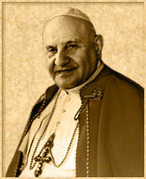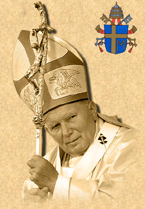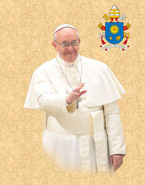First of all, there is the cultural universalization that the Church has to undertake if she wants to get beyond the boundaries of the European mind. This is the question of what inculturation should look like in the realm of sacred music if, on the one hand, the identity of Christianity is to be preserved and, on the other, its universality is to be expressed in local forms. Then there are two developments in music itself that have their origins primarily in the West but that for a long time have affected the whole of mankind in the world culture that is being formed. Modern so-called “classical” music has maneuvered itself, with some exceptions, into an elitist ghetto, which only specialists may enter - and even they do so with what may sometimes be mixed feelings. The music of the masses has broken loose from this and treads a very different path. Commentary: At one level, the Holy Father seems to acknowledge the fact that the music emanating from a particular Catholic community must not be alienated from its peculiar cultural expression. This goes in line with the universality of the Catholic faith which is to be expressed in ways that reflect the faith to be one belonging to all humankind and from all walks of life.
At another level, though, he also continues to assert the imperative of continuity with the great tradition of sacred polyphony, which in today's terms, would mean classical music. However, classical music has now become the sole prerogative of only a selected elite and no longer belongs to the masses. There may be a variety of reasons for this, which are perhaps best known only by those who dwell in its realm. But the distancing of our worshipping community at the grassroots from our sacred polyphony is really symptomatic of how far removed they are from the culture of classical music. The problem is, when you remove something, it has to be replaced with something else. What used to be classical music in the liturgy has now been taken over by contemporary pop music. And inasmuch as many who opt for the assimilation of contemporary pop culture into the liturgy today say that they are "inculturating", it is a bogus claim. One would be inculturating if there were, say, Indian, Chinese, or indigenous cultures incorporated into the liturgy. But to move from high Western culture to low Western culture in the name of inculturation only betrays a self-uncritical ignorance of inculturation and what it truly means.
0 Comments
Leave a Reply. |
Categories
All
Archives
December 2021
|
|
FOLLOW DEACON SHERMAN DEACON'S FORMATION FB GROUP
© 2021 Sherman Kuek. All rights reserved.
|

 RSS Feed
RSS Feed












